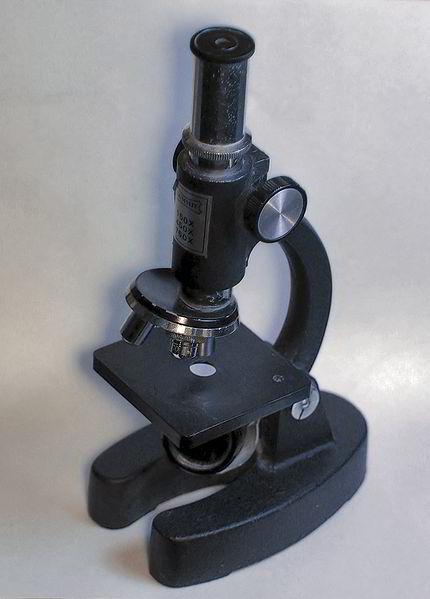
News
Summers Will Not Finish Semester of Teaching as Harvard Investigates Epstein Ties

News
Harvard College Students Report Favoring Divestment from Israel in HUA Survey

News
‘He Should Resign’: Harvard Undergrads Take Hard Line Against Summers Over Epstein Scandal

News
Harvard To Launch New Investigation Into Epstein’s Ties to Summers, Other University Affiliates

News
Harvard Students To Vote on Divestment From Israel in Inaugural HUA Election Survey
Undergraduate Research in the Sciences at Harvard

On a recent sunny April afternoon, I was standing by the rhinos outside the Biological Laboratories meeting with visiting prefrosh and answering their questions about research opportunities for undergraduates at Harvard. “How easy is it for undergraduates, especially freshmen, to get involved in research in the life sciences at Harvard?” one of them asked. What they really wanted to know was, “If I am interested in doing research in the life sciences, tell me why I should come to Harvard.”
The prefrosh are not alone in their interest in research. In a survey conducted among students concentrating in the sciences at Harvard in 2008-09 by the Student Advisory Board for Science, 80 percent of the respondents said they believe that research is an important part of their science education. But what are the real benefits of an undergraduate research experience? Why should advisors encourage students to get involved in research? And if we agree that it is important, how can Harvard stay competitive with its peer institutions in providing undergraduates in the sciences with research opportunities?
Arthur Ellis, writing in the Chronicle of Higher Education, suggests that the undergraduate research experience is beneficial in several ways, and he makes a strong case for undergraduate research as an integral part of a college education in general. He believes that undergraduate research is valuable, among other reasons, because it is a method to train creative thinkers regardless of their final career choice: “The scholarship at the core of academic research lays the foundation for innovation: Well-designed research projects intrinsically encourage risk taking as they explore the unknown. Research promotes critical and creative thinking, the habits of mind that nurture innovation; creates a sense of intellectual excitement and adventure; and provides the satisfaction of real accomplishment.”
More specifically in the sciences, exposure to hands-on work in the laboratory or field teaches analytical-thinking skills. Participating in basic research also helps students learn how to frame appropriate questions, design experiments, and evaluate new data. A senior thesis may provide a capstone experience for an undergraduate. Further, laboratory work may inform career decisions and paths by helping students decide between graduate school and/or medical school, or whether to seek a career in industry or health sciences.
Clearly if Harvard wants to continue attracting the best science students, it must promote a climate in which undergraduate research is the norm and not the exception.
In the past few years, Harvard has demonstrated a strong commitment to undergraduate research by increasing support for students who want to work in the lab or the field. Improved efforts in science advising have helped smooth the way for students seeking research experience. There is increasing fellowship support available to students doing summer research projects both here and abroad. For example, four years ago, Harvard established The Program for Research in Science and Engineering, a residential program open to all Harvard undergraduates conducting summer research in the natural sciences. The PRISE Fellows now have the opportunity not only to engage in research full time but also to participate in a vibrant undergraduate community. This summer, about 120 PRISE Fellows will be working with Harvard faculty at the Faculty of Arts and Sciences, Harvard Medical School, School of Engineering and Applied Sciences, and other Harvard-affiliated institutions. There is good reason for focusing on summer research. Term-time research, while valuable, does not replace the intensive experience of working on a project full time for more than two months during the summer. Students typically spend six to 12 hours per week working in the lab during the term, perhaps less if the lab is located off-campus. During the summer, however, students can work on their research project full time. This focused experience allows them to become immersed in the research culture at Harvard and more fully integrated into their research group. Taking part in regular group meetings or simply engaging in informal conversations with experienced researchers often leads to new ideas and insights in the practice of science. Moreover, having the uninterrupted time to conduct significant experiments and to collect, analyze, and discuss data is more likely to yield meaningful results. These results may eventually lead to a thesis or even a paper for publication in a peer-reviewed journal.
Many students come to Harvard excited by the opportunity to participate in the extraordinary research environment here. Our goal should be to foster that enthusiasm and curiosity, and the best way to meet this goal is to ensure that inquiry-based research is a fundamental component of the College’s educational mission. Indeed, as one of the foremost research institutions in the world, Harvard must meet the challenge of ensuring that all undergraduates at Harvard, and especially those in the sciences, have the opportunity to engage in research as part of their education.
Ann B. Georgi is the undergraduate research advisor for life sciences at Harvard University and co-master of Leverett House.
Want to keep up with breaking news? Subscribe to our email newsletter.
